How much does a literary agent cost? Do you pay literary agents? And which book agent fees should authors avoid paying? This article about how much a literary agent costs is part of our free 15-Part Guide About How to Get a Book Agent. It explains how literary agents make money, and it talks about the standard book agent commission or publishing agent percentage.
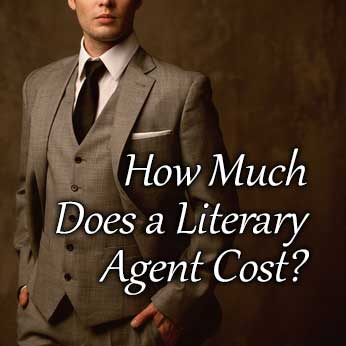
How Much Does a Literary Agent Cost? – FAQ

Do You Pay Literary Agents? – How Much Does a Literary Agent Cost?
How much do literary agents cost? Do you pay a literary agent, or do literary agents charge fees only when they make you money? Reputable book agents don’t get paid up front. They only get paid when you get paid.
Should you have to pay a book agent, and how much does a literary agent cost? Some authors resent publishing agents charging a commission for their services, but every professional who provides a product or service deserves compensation. When it comes to author representation, the literary agent cost is well worth the literary reward.
Since the only way for writers to get book deals with major publishers is with the help of a literary agency, the cost of hiring a literary agent is a cost worth paying. Successful author representatives are also worth their literary agent commission or literary agent percentage because they help writers get paid more than they would if they were negotiating with publishers directly.
There are, however, some publishing agent fees you shouldn’t pay.
Literary Agents Fees – How Do Book Agents Make Money?
The literary agent fees authors shouldn’t pay are “literary agent reading fees,” “literary agent processing fees,” and any other literary agent fee not listed here. Those types of fees are frowned upon, and prohibited by the Association of American Literary Agents (AALA), formerly known as the AAR or Association of Authors’ Representatives.
How do literary agents make money, and how much does a literary agent cost? The only legitimate literary agent fees authors should pay are the standard book agent commission (explained in greater detail below), and any other expenses agreed upon in a writer’s author-agent contract.
Separate from a publishing agent commission, most author representatives charge up to $100-$350 per year for phone, photocopy, and courier costs associated with managing a writer’s work. Most literary agencies only collect that type of literary agent fee if they’ve sold one or more of your books.
A very small number of literary agencies charge reading fees, processing fees, and other publishing agent fees that are not part of a standard literary agent commission or the common literary agent expense deduction mentioned above. We do not recommend working with those types of publishing agents.
Literary Agent Commission – What Percentage Does a Literary Agent Take?
How much is a literary agent commission? What percentage does a literary agent take? Most book agents charge a standard literary agent commission of 15%. However, a small number of literary agencies charge a higher literary agent percentage.
How much does a literary agent cost? Most publishing agents in the United States require a standard literary agent commission of 15%. This book agent commission is payable if the book agent finds a publisher who wants to buy “North American book rights” for a manuscript. In other words, if the publisher wants to publish, distribute, and sell the book in North America. A small number of literary agencies charge a literary agent commission of 20% for this.
Literary agencies also charge a higher literary agent commission rate if they sell “subsidiary rights.” For example: audio, feature film, television, stage, international, translation, etc. When a literary agency sells those rights, they often require a book agent commission or book agent percentage of 20-30%. That’s because author representatives often partner with a “co-agent” or “sub-agent” who specializes in that area(s) to sell such rights. When that happens, the two publishing agents split or share the publishing agent commission.
How Do Literary Agents Get Paid? – How Much Does a Literary Agent Cost?
How do literary agents get paid? Most of the time, book agents accept publisher payments to their authors on their behalf. Then they deduct their book agent commission or book agent percentage, and any agreed upon expenses. Other times, publishing agents and their writers get paid separately from the publisher.
When a publisher sends an author payment to a literary agency, the amount due to the author is sent to the author with a detailed accounting. That accounting should include a copy of the financial accounting statement issued by the book publisher. It should also include an accounting of the book agent commission that’s been deducted, and any expenses outlined in the author-agent contract.
Publishing agents typically send author payments within 7-30 days of receipt from the book publisher. The time required to send author payment varies, but most book agents list the time in which they’ll send payments in their author-agent agreements.
The primary example of when publishing agents get paid separately from a writer is when an author parts ways with his literary agency for some reason and the author-agent contract is terminated. When that happens, the author representative arranges “split payment” with the publisher for future payments.
After that, the writer receives future royalty payments directly from the publisher. The book agent receives their future literary agent commission payments directly from the publisher as well. Both parties receive separate financial accounting statements from the publisher.
Literary Agent Scams – How Much Does a Literary Agent Cost?
Due to someone impersonating representatives of our company—and many others well-known companies—we’ve filed a report with the FBI, and written the following. Literary agent scams and other publishing scams are becoming increasingly sophisticated. Here we explain what you need to know—and do—to protect yourself, and other writers you care about.
Please read this entire notice in its entirety, as it likely has information you’ve not seen elsewhere.
Impersonation Scams
If you’re contacted by someone you haven’t contacted previously—a literary agent, book publisher, or movie/streaming company—there’s a good chance it’s a scam. It might even be a scam if it’s someone you initiated contact with.
Scam Literary Agents, Book Publishers, and Movie or Streaming Companies
If you get an email from a supposed literary agent, book publisher, or movie/streaming company, the message might look convincing. It might include the name and photo of an executive with the company, the company logo, a link(s) to the company website, and contact information including the company phone number.
That doesn’t mean it’s real.
The company “representative” might say they found your (usually self-published) book online, or that someone told them about your work—and they’re prepared to pay you millions or hundreds of thousands of dollars. Eventually, however, if you go down that rabbit hole, you might end up providing personal and/or banking information that shouldn’t be shared. You also might be asked to pay some type of registration fee and/or other fees…that no legitimate literary agent, book publisher, or movie/streaming company would require you to pay.
The scammers might send you a glowing write-up or review of your book (generated by AI). They might set up multiple phone or Zoom calls with you, and you might be contacted by two conspirators: one pretending to be a well-known literary agent, the other pretending to be a book publisher or movie/streaming company executive. Their email(s) might be written with good English, completely free of typos, and they might send you documents that look official.
That doesn’t mean it’s real.
Unfortunately, our company found out recently how sophisticated these scammers can be. We were notified by two authors who said they’d been contacted by a “representative” of our company, with offers for representation and publication. That makes no sense, however. This is a coaching/consulting company that’s helped hundreds of authors get offers from literary agents, but we don’t act as anyone’s literary agent or publisher.
Scam Investigation and Prevention
If you get a lot of email, you’ve probably received messages saying you’ve won the lottery or inherited millions of dollars. When that happens, you probably roll your eyes, knowing it’s a scam. You know you’ll end up with a lighter wallet if you reply to that email or click on the link provided. Please treat any unexpected or unsolicited “good news” about your book the same way: with a healthy amount of skepticism.
When you get an email, look at the email thread. If you initiated contacted with the person, you’ll likely see your original message(s) in the email thread of the person’s reply. In that event, you probably don’t have much, or anything, to worry about—assuming the person you contacted is who you think they are, and they’re legitimate.
If you didn’t initiate contact with the person:
-
Look at the email address, carefully. For example, our company’s email addresses end with @getaliteraryagent.com or @thebestsellingauthor.com. Email that are allegedly from us, with addresses ending with @literaryagentsguild.com, @literaryagents-guild.com, or anything else, are fraudulent.
-
Look at the domain name, carefully. The scammers we discovered impersonating our company were sophisticated. They bought the website address or domain name “literaryagentsguild.com.” There’s no such thing as the “Literary Agents Guild,” but it sounds legitimate. The scammers used “domain forwarding,” so if someone saw “literaryagentsguild.com” in the email address and typed that into their Internet browser, it took them to one of our websites. Fortunately, we were able to get GoDaddy, the domain registrar, to remove the fake domain and associated email account being used to send fraudulent emails to unsuspecting authors.
-
Don’t reply to the email OR use the contact information in the email. Instead, do a Google search to find the company’s official website and contact information. Treat it like you (hopefully) treat your banking. If you get an email, phone call, or text from someone saying they’re with your bank, you should realize it could be a scam. Instead of providing your personal information to the person who contacted you, you should find the phone number of your bank online—or on the back of your debit card—and call to verify whether the person who contacted you was legitimate.
In other words, if you get an email from someone saying they’re a representative of Penguin Random House, and they want to buy the rights to publish your book for 1.8 million dollars, you should Google “Penguin Random House” to look for a phone number or email address. If the company is aware someone is impersonating them, you’ll likely find a page like this one on the Penguin Random House website with an alert. On that page, you’ll see the email address fraud@penguinrandomhouse.com, so you can find out if an email you got from them is authentic.
-
Remember, legitimate agents, publishers, and movie companies will never ask you for any upfront fee. To see what legitimate literary agents charge—and how they get paid—scroll above this alert for information about that.
-
Other things to watch out for. If you respond to an unsolicited message from any of the following, it’s probably a scam: a literary festival wanting to feature or honor your work, a bestselling author promising to give you a blurb, someone saying they’ll get you reviews on Goodreads, etc.
-
Protect yourself from other types of book publishing industry scams by looking at this list on The Authors Guild website. It’s disheartening to see, but it’s better to be aware than naive, so you can protect yourself.
-
If you or someone you know has been a victim of any of the above, please file a report with the FBI’s Internet Crime Complaint Center.
This article about “How much does a literary agent cost?” “How much do publishing agents charge?” “How do publishing agents get paid?” and “Literary agent scams” was written by a former literary agent turned author coach. Mark Malatesta is the creator of The Directory of Book Agents, host of Ask a Publishing Agent, and founder of Literary Agent Undercover and The Bestselling Author.
Mark has helped hundreds of authors get offers from literary agents and/or traditional publishers. Writers of all Book Genres have used our Book Agent Advice coaching/consulting to get Top Literary Agents at the Best Literary Agencies on our List of Literary Agents.
How Much Does a Literary Agent Cost? – Next Steps
Now that you know the answer to the question, “How much does a literary agent cost?” click here to:
- See the next part of this guide to getting a book agent, How Much Do Authors Make?
- Visit our Ask a Publishing Agent page, where you’ll find a complete list of questions and answers about getting a book agent.




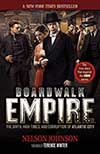

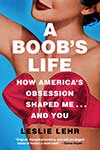



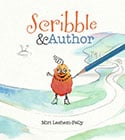
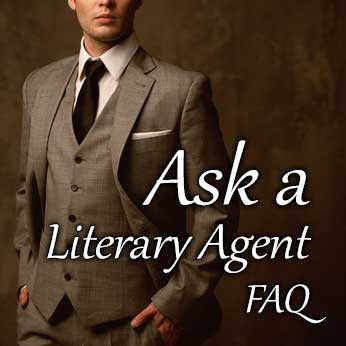
 MARK MALATESTA is a former literary agent turned author coach. Mark now helps authors of all genres (fiction, nonfiction, and children's books) get top literary agents, publishers, and book deals through his company
MARK MALATESTA is a former literary agent turned author coach. Mark now helps authors of all genres (fiction, nonfiction, and children's books) get top literary agents, publishers, and book deals through his company 